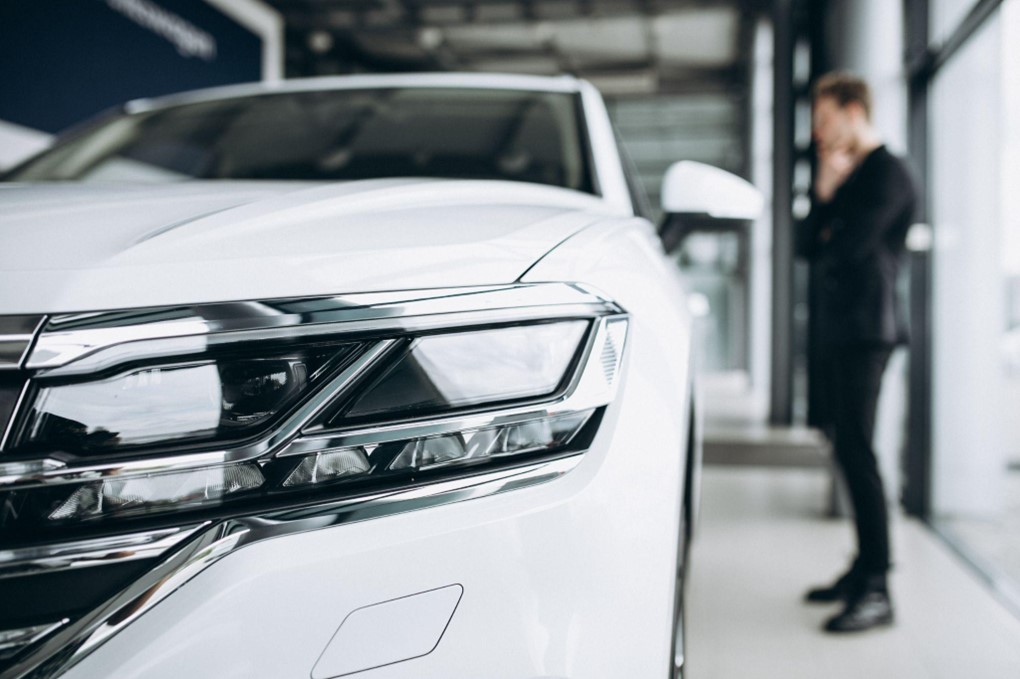Leasing vs Buying A Car In Singapore: Read This First!
- October 25, 2022
- 12:08 pm

Share This Post
Table of Contents
It’s no secret that Singapore is one of the most expensive places in the world to own a car.
Many residents end up using public transport or booking taxis and Grab rides.
But, there are occasions when owning a car can be extremely handy. For example, when you need to report to the office daily and public transport isn’t going to cut it. Or someone needs immediate hospital care, and there are no available transport options nearby.
Now you’re faced with two options: leasing or buying a car in Singapore.
Both involve motor insurance, road tax, and other maintenance costs.
This article explores the benefits of leasing or buying a car in Singapore and a few factors worth considering.
What Are The Advantages Of Leasing A Car?

Car leasing is an auto financing arrangement wherein you make monthly repayments to drive the vehicle.
It’s similar to “renting” a car for a specific period (2-5 years) and, sometimes, a certain amount of miles.
After the lease term ends, you can buy out your lease if you want to keep the car. Or, you could return the vehicle to the dealership and upgrade to a different model if you wish. Here’s the advantages of leasing:
Convenient
If you’re the sort of person who needs to drive but finds it difficult to keep up with the paperwork of owning a car, then leasing is a cost-effective option.
Car leasing companies will have already taken care of the administrative costs and activities, such as:
– Bidding/renewing a COE (Certificate of Entitlement)
– Registering the vehicle
– Paying the road tax
– Insurance costs
– Maintenance costs
If, in any case, you encounter problems with the leased vehicle, the leasing company will send in a replacement car — something you don’t see when you bring a purchased vehicle for servicing.
Various Models To Choose From
Sometimes, leasing a car is an excellent option for those who plan on buying a car in the future but are unsure about which model to purchase.
To find out how the car can mould to their lifestyle, the buyer can choose short-term leasing and have the vehicle replaced at the end of the term.
Available Luxury Vehicles
If your dream car is a top-of-the-line Lamborghini or Ferrari, you may not immediately be able to pay for the 30-50% down payment and car loan.
However, with leasing, you can drive around a luxury car of your choice and not have to worry about the added maintenance costs.
It’s not a practical move. But if you can afford the monthly repayments and want a taste of the finer things life offers, then, by all means, go ahead.
Plus, driving a luxury vehicle to meet high-end clients is a subtle way of signalling that you should be taken seriously.
Many car leasing companies offer a selection of luxury models at reasonable monthly prices. However, expect that the security deposit may be steeper than for regular cars.
Flexibility
A primary advantage of leasing a car is the financial flexibility.
Many car leasing plans don’t require a down payment before you can drive it.
There may be a security deposit or a few administrative fees to settle, but the final amount doesn’t come close to what you’d have to pay if you purchased a car.
Purchase The Car At The End Of The Lease
In rent-to-own car leasing schemes, you can purchase the car after your term ends. You can go down this route if you had a great experience with the vehicle, and especially if the purchase price is much less than the car’s Open Market Value (OMV).
Lower Repair Costs
Most car manufacturers offer warranties that last 2-5 years.
So, if you take a three-year lease, most repair costs will have already been covered.
Leasing can reduce the hassle of servicing the vehicle, preventing potentially expensive unforeseen expenses.
No Need To Resell
Unless you choose a lease-to-own scheme, there’s no need for you to resell the car in the future.
You don’t need to worry about arranging car viewings with prospective buyers and finding a middleman to help you out.
You only need to be mindful of paying any end-of-lease fees (if any) and expenses due to unusual wear and tear and added mileage, if applicable.
What Are The Advantages Of Buying A Car?

In contrast, buying a car requires securing financing before you can afford one. Chances are, you won’t have cash upfront to pay for its OMV, which is why you need to take out a loan from a creditor.
Another difference is that car ownership involves a long-term commitment.
Most people end up using the car beyond five years, which is much longer than the average lease term.
After which, its value would have significantly depreciated, making it much cheaper than leasing a car of the same type.
Here are the benefits of car ownership:
You Own The Car
If you purchase the vehicle outright with cash, you can pretty much do anything you want on it. But if a lending company has financed it, they “own” the car until you can fully pay it off at the agreed period.
Few Restrictions
A car lease will usually have a mileage cap.
This means you have a limited amount of miles to drive the car, so you’ll have to keep track of this.
But with car ownership, there aren’t many restrictions on what you can do with the vehicle. You can drive it for tens of thousands of miles or even take a road trip to Malaysia.
Buying a car may be the better option if you frequently spend time on the road. No one will charge you extra fees if you exceed the mileage limit.
Customise The Vehicle
Car ownership means you can do much more than adding a windshield sunshade.
The car is yours, so you can add as many customisations as you want.
The extent of the car’s customisations will depend on your willingness to spend on accessories, upgrades, and other tune-ups.
Sell At Your Own Time
Since you own the car, you’re free to sell it whenever you want, provided you’ve successfully paid it off.
If you’re considering upgrading the car model, you can sell off your Toyota Corolla Altis for a Lexus, for instance.
Low Credit Score Requirement
Your credit score reflects your ability to pay off a loan. Leasing a car generally requires higher credit scores than buying one.
By this understanding, it can be more difficult to get approved for a lease than a loan.
Buying Vs Leasing A Car: Disadvantages

Buying and leasing a car also have their own set of disadvantages.
Purchasing a vehicle, especially in Singapore, can be much more expensive.
Before buying a car, you need to consider several factors:
1. OVM – Refers to the baseline value of the car, depending on the make and model.
2. Additional Registration Fee (ARF) – A payable tax after registering a new car. How much you’ll have to pay depends on the car’s OMV. Typically, the higher the OMV, the higher the ARF.
3. Certificate of Entitlement (COE) – This certificate lasts only ten years in Singapore. It’s your ticket to legally registering and driving a car in the city. COE prices tend to be volatile, leading to an increase in car prices. Bidding for a COE can also get inconvenient.
4. Excise Duty and GST – Tax imposed on all consumer goods in Singapore, such as alcohol, petrol, and cars. The excise tax is 20% of the OMV, then an additional 7% for the GST.
5. Road Tax – Be it for a secondhand or brand new car, you’ll need a valid road tax, renewable every 6 to 12 months.
6. Prevailing Quota Premium (PQP) – You can renew your COE every 5 or 10 years once it expires. The value of the PQP will depend on your vehicle category and its lifespan.
We know what you’re thinking — that’s a lot of expenses just for one car in Singapore.
What more if you’re planning on buying another one in the future?
If you’re strongly leaning into leasing a car instead, there are also a few disadvantages you may want to consider:
1. You don’t own the car – Leasing doesn’t immediately allow you to own the car. It ultimately belongs to the leasing company which has “lent” it to you.
2. Mileage limit – Some car leasing companies put a mileage cap as part of the lease term agreements. This means you’ll have to shoulder the costs for the kilometres you’ve driven in excess of the agreed mileage.
3. Stock parts – Remember, the leasing company manages the costs of tires and other car components. You don’t really have any choice if they install stock parts or lease the vehicle as is. However, it’s well within the company’s rights to execute such changes since they legally own the vehicle.
Conclusion About Leasing Vs Buying A Car In Singapore
Ultimately, your choice to lease or buy a car in Singapore depends on your lifestyle. It’s best to weigh each option and determine what will be more suitable.
Consider your budget and transport needs. Can you afford to pay for a brand new car upfront? Go for ownership.
Will you only temporarily need a vehicle as an alternative mode of transport? Leasing may be suitable.
For more information, contact Hong Seh Leasing. We offer electric van rentals and car leasing in Singapore, with dozens of models. Take your pick: BMW, Mercedes-Benz, Toyota, and Lexus, and we’ll handle the rest.
Frequently Asked Questions About Leasing Vs Buying A Car In Singapore
What Is The Price To Lease A Car In Singapore?
If you want to lease a car in Singapore, the price ranges from $1,500 to $4,000 and above.
Can You Return A Leased Car Before The Term Ends?
You may face additional fees and penalties when you terminate your car lease before the agreed-upon date. This is why, if there are only a few months left on your car lease, it’s better to wait it out before returning the vehicle.
Can Lease Payments Decrease?
After signing a lease agreement, you can no longer change how much you pay monthly. You cannot renegotiate your lease term. But, lease plans tend to be flexible, so it’s best to talk to the leasing company before signing a contract.
What Will Happen If You Buy Out A Car Lease?
If you pay off your car lease, the price will depend on the car’s residual value. The residual value is also known as the buyout amount or purchase price.
What Will Happen If You Don't Pay A Car Lease?
Not fulfilling the terms of your lease agreement is considered a breach of contract. The lessor may repossess the car from you. Make sure to get in touch with your lender if you cannot make payments on time.
